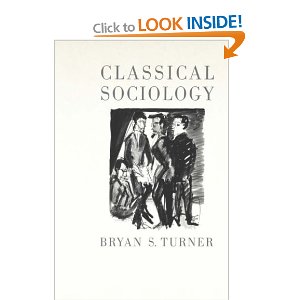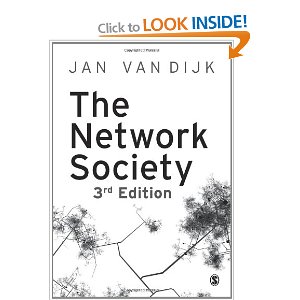Archive for the ‘History’ tag
Slowed Progress But Marxism no comments
This week’s reading was somewhat disappointing. I had intended to get through more content however I found that much of what I was reading required a much deeper level of analysis to understand. For this reason, rather than exploring social networks or globalisation; I have focused more heavily on sociology and in particular one of the most famous thinkers to have influence the field: Karl Marx.
Both for Politics and for Sociology, Marx is held in very high regard. Despite how authors feel about the validity of Marx’s views; it is quite clear that most, if not all, commenter’s extend a degree of respect for the man regarding him as a thought leader both in his own time and beyond. Whilst I would have preferred a broader week of reading, the fact that Marx and Marxist theory exists so prominently both in sociology and politics I did not begrudge the topic the extra time I afforded it. I consulted two texts in particular.
Marx, Marginalism and Modern Society

This book offered a good introduction to Marx as a whole, in terms of both his contribution to politics and sociology. The thrust of the argument presented in this text is that Marx’s key contribution was his critique of the political economy. The author presents the case that whilst this was recognised to varying extents in politics and economics; sociological perspectives took longer to entwine themselves with Marxist viewpoints.
On reason for the eventually large scale adoption of Marxist theory within sociology is suggested to pertain to Marx’s views on materialism, in particular; Historical Materialism. The perspective argued that whilst history might have previously separated notions of personhood from thingness, history rather required a deeper account of interactions. For example, dissecting the “things” called institutions into the individual “people” they were made of. This view offers significant importance for sociology allowing far deeper consideration of the people that were previously amorphous entities. Many comparisons can be drawn between these notions and social networking. Not least because of the changing relationships such sites have had with their user bases over time but also at the level of individual users with the structural changes from simple lists of activity to Facebook’s features like “Timeline”. These most certainly can be argued to personalise “events” allowing them to become related much more closely to the individual they are associated with.
Classical Sociology

This book provided a good logical point of development for explaining the development of Marxist sociological theory. In particular it dealt with the ways in which Marxist theory has been modified or adjusted in what has been argued is a necessary process of modernisation.
This notion of modernisation does not reflect technological or social advancement explicitly but rather the sociological ideas about “modernity”. As before, this is essentially the view that different cultures/societies have modernised differently leading to “multiple modernities”. The author highlights that sociologists like Anthony Giddens have argued that modernity changes the social structure and as such requires a post-modern sociology. The means that only theories that account for such changes, only post-modern theories, are sometimes argued to be the only theories relevant to assessments of the modern world. This text’s author however, believes that Marxism exploits a loophole in this argument by way of the additional work done by one Max Weber.
The author argues that Max Weber’s neo-marxism, in particular the addition of Nietzsche’s perspectivism, is the key to incorporating Marxist theory into discussions of “modern” society. Perspectivism is the theory that the acquisition of knowledge is inevitably limited by the perspective from which it is viewed. This is infact a common view within sociology and has significant relevance to the nature of accounts of social networks. Does a persons experience of myspace or facebook vary if they are a “user”, a “business”, a “celebrity”, a “moderator”, a “site owner” and so on. When considered alongside political perspectives this is of course still deeply relevant. The nature of both a person’s position/perspective, the role that position/perspective implies and the power (or lack of power) that it entails all contribute the nature of the interactions they will experience.
For my reading this coming week it is my intention to focus on texts relating to social media. In particular The Network Society.
Criminology: Overview and Brief History. no comments
I have decided to start by learning the principles which underlie criminology and philosophy. I start by asking, what is criminology? Then I go on to give a brief history of criminology.
After trawling the net for some time, paying particular attention to university websites, I decided to use “The Oxford Handbook of Criminology” by Mike Maguire, Rod Morgan and Robert Reiner as my core textbook, almost everything below is indebted to them.
What is Criminology?
Criminology draws from an amalgam of subjects such as law, sociology, phycology, psychiatry, history and anthropology in order to answer questions like, what are the causes of crime? What are the ethnographic s of certain deviant groups? What can we learn from case studies of individual criminals? Can we predict future crimes and future perpetrators of crime? Why are some people criminals and others not?
This begs the question, why did Criminology become a discipline in its own right? Maguire, Morgan and Reiner suggest that it was contingent upon the exertions of discipline forming institutions and dominant individuals.
They then go on to discuss the emergence of criminology as a discipline. It is suggested that criminology is the synthesis of two schools of thought. The first is government – who want to know how to best create laws and govern with respect to crime and criminals. The other school of thought comes from an Italian anthropologist Cesare Lombroso(1835-1909) who thought that people could be divided into two category, criminals and non-criminals, Lombroso went so far as to claim that there is a biological difference between criminals and non-criminals.
With a hard science a scientist or group of scientists produces a theory and evidence to back it up. Then they write it down in the form of a paper which is peer reviewed and then either accepted or not accepted into the scientific community. If a theory is accepted within the scientific community it is then accepted in the general public for example the theory of Black Holes. On the other hand a scientific theory accepted in the criminology community is not always accepted by the general public. The “common sense” view of the world is often much more powerful.
In order to understand the principles of Criminology it is useful to detour into some History.
A Brief History of Criminology
The history of criminology turns out to be a fiercely contested, vague and ugly. In fact the word criminology was only coined in the 1890’s and what we think of as criminology today (the current paradigm if you like) only crystallised in the 1960s and 70s, and even that’s debateable. The history of criminology is further confused, because what was thought of as “criminology” differed in France, Germany, England, Italy and the U.S.
To illustrate the history of criminology I have created a timeline with significant events and the socio-economic backdrop for these events. My apologies, especially to Paul and Javier that it’s not fantastically beautiful! Hopefully the timeline helps to elucidate the history of criminology, which is contingent upon sociological events. For example, criminology, it is argued by Maguire, Morgan and Reiner, really started in the 18th century, which was also the time when a network of insane asylums and doctors attending these asylums emerged in Europe. Maguire, Morgan and Reiner further argue that since a significant proportion of inmates in the asylums were also criminals, for the first time doctors were concerned with understanding the criminal mind.
Then throughout the 19th century and the beginning of the 20th prisons were invented and governments became stronger. As a result governments, especially in the UK, became interested in how to control their citizens and demanded reports about criminal behaviour, crime rates prisons and laws. As a result most of the work done in the UK was modest and respected legal principles.
Then WW2 happened and shortly afterwards the modern British welfare state was created. There was a political move towards greater social and economic equality. Coupled with this many great crime researchers came to Britain from Germany where ideas about social demographics and crime were far more advanced. Add into the mixing pot a government and public fear about juvenile delinquents in the 50s and it should come as no surprise that criminology entered the academic arena in 1961 in Cambridge.
Since then criminology has pulled away from a study into how to cure/correct a criminal towards a more interdisciplinary subject concerned with social, philosophical and psychological aspects of crime.
